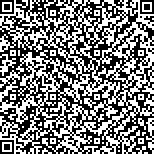周敏亚,俞坤强,吴李秀,等.功能导向性训练对恢复期脑卒中患者平衡功能和日常生活活动能力的影响[J].中华物理医学与康复杂志,2021,43(4):327-331
扫码阅读全文

|
| 功能导向性训练对恢复期脑卒中患者平衡功能和日常生活活动能力的影响 |
|
| |
| DOI:10.3760/cma.j.issn.0254-1424.2021.04.008 |
| 中文关键词: 恢复期脑卒中 功能导向性训练 平衡功能 日常生活活动能力 |
| 英文关键词: Stroke Function-oriented training Balance function Activities of daily living |
| 基金项目:国家自然科学基金面上项目(81774386);浙江省基础公益研究计划(GF19H170019);浙江省自然科学基金(LQ20H270020) |
|
| 摘要点击次数: 6430 |
| 全文下载次数: 9176 |
| 中文摘要: |
| 目的 观察功能导向性训练对恢复期脑卒中患者平衡功能和日常生活活动能力的影响。 方法 将恢复期脑卒中患者60例按随机数字表法分为对照组(n=20)和观察组(n=30),对照组进行常规的康复训练,观察组进行功能导向性训练。2组患者均于治疗前和治疗6周后(治疗后)进行Berg平衡量表(BBS)、Fugl-Meyer评定量表下肢部分(FMA-L)、“起立-行走”计时测试(TUGT)和改良Barthel指数(MBI)评估。 结果 治疗后,2组患者的BBS、FMA-L、TUGT及MBI结果较组内治疗前均明显改善,差异均有统计学意义(P<0.05)。观察组治疗前、后BBS、FMA-L、TUGT、MBI差值分别为(12.90±3.32)分、(11.35±2.56)分、(-11.20±2.99)s和(18.50±5.80)分,与对照组相比,差异均有统计学意义(P<0.01)。 结论 功能导向性训练可显著改善恢复期脑卒中患者的平衡功能和日常生活活动能力,且治疗效果较常规康复治疗更好。 |
| 英文摘要: |
| Objective To observe any effect of function-oriented training on the balance of recovering stroke survivors and on their ability in the activities of daily living. Methods Sixty stroke survivors in recovery were randomly divided into an observation group (n=30) and a control group (n=30). The control group received routine rehabilitation training, while the observation group underwent function-oriented training for 6 weeks. Before and after the intervention, both groups were evaluated using the Berg balance scale (BBS), the Fugl-Meyer lower extremity assessment (FMA-L), the timed up-and-go test (TUGT) and the modified Barthel index (MBI). Results After the treatment, significant improvement was observed in all of the measurements in both groups. The improvements in the average BBS, FMA-L and MBI scores and in the TUGT times of the observation group were significantly better than those of the control group. Conclusion Function-oriented training can improve the balance and the ability in the activities of daily living of stroke survivors more effectively than the routine therapy. |
|
查看全文
查看/发表评论 下载PDF阅读器 |
| 关闭 |